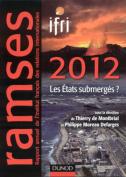Security - Defense
As a result of global strategic competition, security and defense issues are marked by the return of major wars and nuclear deterrence, the transformation of terrorism and the race for military technologies.
Related Subjects

Toward the End of Force Projection? II. Operational Responses and Political Perspectives
For more than a decade, US defense circles have been concerned about the emergence of capabilities and strategies, which, as they spread, risk imperiling the United States" position in the world by their ability to disrupt or prevent force projection operations. Though most of the literature on such “anti-access” strategies focuses on the military aspects of the threat, this Focus stratégique - the second and last part of a two-part study - adopts a different perspective.
Intelligence and Nuclear Proliferation: Lessons Learned
Intelligence agencies play a fundamental role in the prevention of nuclear proliferation, as they help to understand other countries' intentions and assess their technical capabilities and the nature of their nuclear activities.

Activists without borders? The trips to Israel and the Palestinian territories organized by activists from France

Zionism: how militant oppositions lead to multiple interpretations

RAMSES 2012. Les États submergés ?
RAMSES (Le Rapport annuel mondial sur le système économique et les stratégies), is a yearly publication that provides in-depth reviews and prospective analysis on current events, providing readers with indispensable insights and perspectives for understanding contemporary geopolitics on the global scale.
Toward the End of Force Projection? I. The Anti-Access Threat
Force projection has become a general posture and a fundamental dimension of the influence Western powers intend to exert over the world by means of their armed forces.
La guerre des hélicoptères : L'avenir de l'aéromobilité et de l'aérocombat
Military helicopters have evolved into technologically sophisticated weapon systems. Originally designed to counter Soviet armor, attack helicopters now have to cope with a wide spectrum of threats, some of them bringing choppers back to their counterinsurgency roots.
NATO Partnerships: Shaking Hands or Shaking the System?
The new Strategic Concept takes stock of the past ten years but outlines only modest objectives for the future of NATO. Partnership falls under the third core task, cooperative security. A subsequent partnership policy was unveiled, but has provided little new impetus.
Russia's Nuclear Forces: Between Disarmament and Modernization
Nuclear weapons have traditionally occupied an important place in Russia’s national security strategy. As Russia and the United States have been reducing their nuclear arsenals since the end of the Cold War, their relationship has undergone a complex transformation. Russia, however, still considers strategic balance with the United States to be an important element of national security.
Economic Constraint and Ukraine's Security Policy
Since winning the 2010 presidential elections in Ukraine, Viktor Yanukovych has worked hard to repair Kyiv's relationship with Moscow.
Support independent French research
Ifri, a foundation recognized as being of public utility, relies largely on private donors – companies and individuals – to guarantee its sustainability and intellectual independence. Through their funding, donors help maintain the Institute's position among the world's leading think tanks. By benefiting from an internationally recognized network and expertise, donors refine their understanding of geopolitical risk and its consequences on global politics and the economy. In 2025, Ifri supports more than 80 French and foreign companies and organizations.













